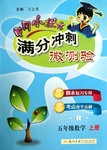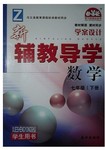题目内容
People from Great Britain brought the English language to North America in the 16th and 17th centuries. And in the __________ 300 years, there were so many __________ in both places that now people can easily __________ an English person from an American in the __________ he or she talks.
Many old words __________ in England but were kept in America. For example, 300 years ago people in Great Britain got their water from something they __________ either a “faucet”, “spigot”, or a “tap”. All these words are __________ heard in different parts of America, but only “tap” is still __________ in England. Americans often make __________ new words or change old ones. “Corn” is one kind of plant in America and __________ in England.
Also, over the last three centuries the English language has __________ thousands of new words for things that weren't __________ before. And often, American and English people used two __________ names for them. A tin can is called “tin” for short in English, but a “can” in America. The word “radio” is __________ all over the world, including America. But many English people call it a “wireless”. And almost anything __________ something to do with cars, railroads, has different __________ in British and American English.
But now American and British English may be __________ closer together. One thing is that __________ people can hear a large amount of American speech daily in __________, on television, or from travelers. Because of this, Americans __________ to be influencing the British more and more. So some day, English may even be the same on both sides of the Atlantic.
1.A. past B. recent C. oldest D. latest
2.A. citizens B. inventions C. changes D. advances
3.A. pick B. tell C. take D. judge
4.A. voice B. place C. language D. way
5.A. disappeared B. stayed C. returned D. formed
6.A. said B. talked C. spoke D. called
7.A. then B. hardly C. clearly D. still
8.A. necessary B. native C. common D. lively
9.A. of B. into C. up D. out
10.A. another B. the other C. none D. something
11.A. discovered B. added C. improved D. learned
12.A. accepted B. known C. introduced D. understood
13.A. new B. short C. different D. surprising
14.A. produced B. made C. developed D. used
15.A. having B. bringing C. getting D. making
16.A. types B. names C. degrees D. parts
17.A. putting B. staying C. living D. growing
18.A. British B. American C. educated D. ordinary
19.A. families B. buses C. movies D. newspapers
20.A. need B. expect C. seem D. happen
 小天才课时作业系列答案
小天才课时作业系列答案 一课四练系列答案
一课四练系列答案 黄冈小状元满分冲刺微测验系列答案
黄冈小状元满分冲刺微测验系列答案 新辅教导学系列答案
新辅教导学系列答案
